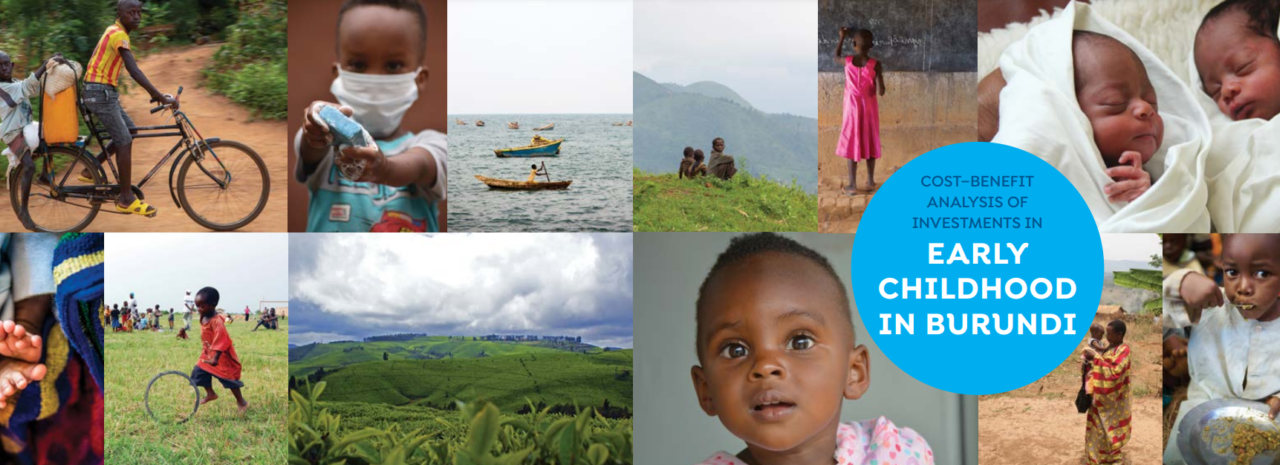
Building the case for an investment in ECD in Burundi
About two out of three children below five years old in Burundi are at risk of not achieving their full potential due to delays in their early childhood development (ECD).
The national development policy has set the development of human capital as a priority to catalyse the economic and social growth of the nation up to 2027, and beyond. With this, Burundi recognised the opportunity to leverage the potential of its children, which represent a large proportion of its population.
For this to be achieved, enhanced and sustained prioritisation of ECD investments must be realised. However, the current spending in ECD in the country reflects underinvestment and low prioritisation. This is worsened by the additional and unprecedented pressure the COVID-19 pandemic has put on the fiscal space and the uncertainty in the level of donors’ contributions.
Genesis study on ECD in Burundi selected for top UNICEF award
To make the case for investments in ECD, evidence is needed to understand the impact these will generate in the Burundian context when spent in different multi-sectoral packages of interventions. The Human Development team partnered with UNICEF and the Government of Burundi to build the case for multi-sectoral ECD investments in the country and recommend the package of ECD interventions that is optimal to boost the development of its youngest generation and, thus, of the nation as a whole.
We generated economic evidence on the long-term potential impact of these investments in Burundi by developing an ECD investment case for the country, using a cost-benefit analysis. To build up this analysis we used a decision-analytic model based on a decision tree.
We took the analysis further by carrying out a fiscal-space analysis that identified the budgetary room available for the government to provide the required funding for these investments without undermining its fiscal sustainability and, finally, we recommend potential sources of funding.
To produce context-rooted evidence that can drive decision-making, we used the best country-specific available evidence that we obtained through secondary as well primary-data collection. We engaged with relevant parties and stakeholders from the beginning of the study, allowing for co-creation of the study design and co-ownership of the results and recommendations.
Watch the video here
The investment case will be used as a tool to attract optimal attention to multi-sectoral ECD investment needs and prioritise its funding through domestic and external investments. It will also serve as an external and internal advocacy tool to guide the development of an ECD policy and the systematic incorporation of these policies in the budget cycle.
Cost–benefit analysis of investments in early childhood in Burundi: Read the full report